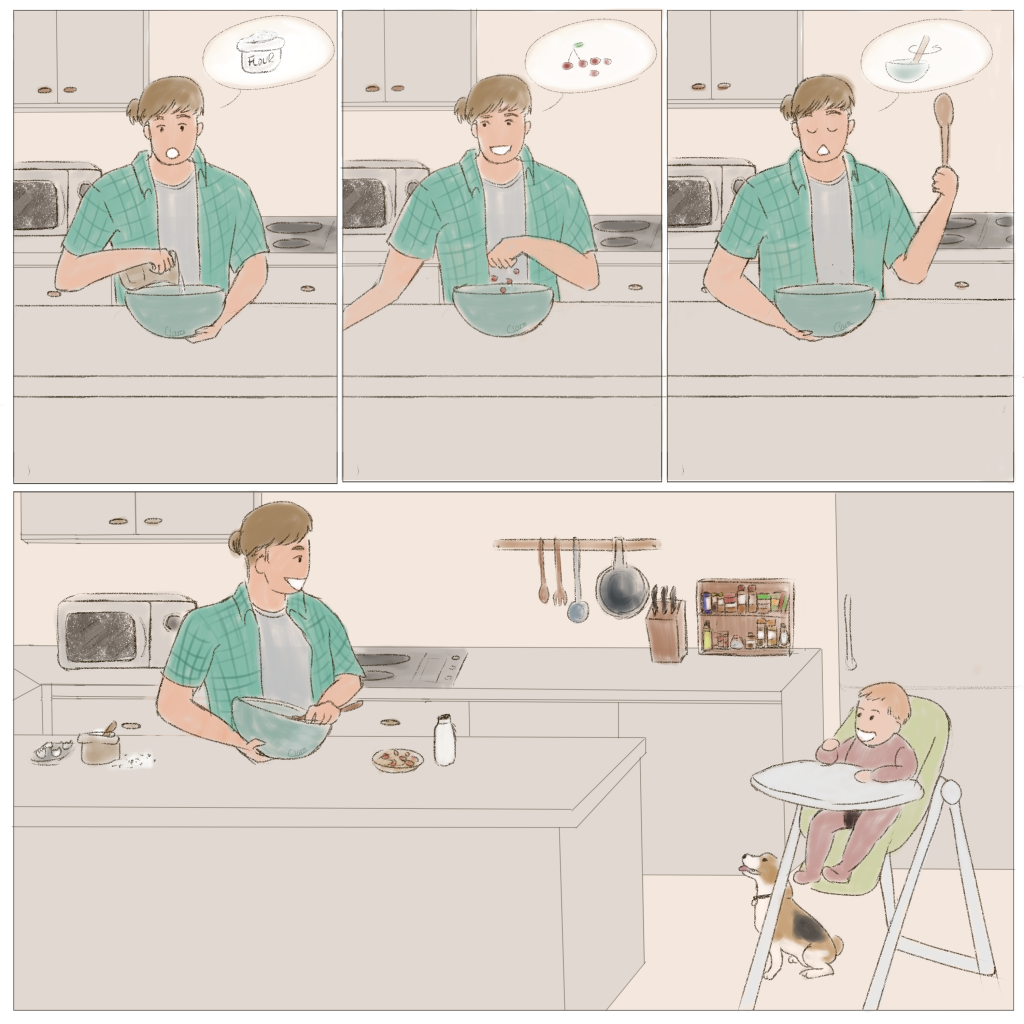Is it important to talk to a baby before she starts speaking?

Social interactions involve two (or more) people. Yet, when one of those people is a preverbal infant, an interaction can feel like a monologue. It can feel like the caregiver is just talking, or signing, to themself. So how can a caregiver foster language learning in a preverbal infant?
Well, the answer is: by talking, or signing, to themself!
If a caregiver narrates while cooking near a young infant, this can be a social interaction. A preverbal infant may react non-verbally. An obvious reaction could be a smile. A less obvious reaction could be sucking more (or less) on a pacifier. ‘Sucking rate’ is actually how scientists measure reactions in young infants!
One important discovery in the field of language acquisition has been the distinction between age of comprehension and age of production. Children often understand quite a lot of language before producing their first words. 6-month-old infants already know a good handful of words, such as mommy, foot, bottle. So, even if your child is not showing obvious or less obvious reactions, they are likely keen spectators of your monologue! These monologues are great building blocks for language learning.
Think of it like taking the stage, before an audience of passionate language learners.
The scientific source for our comic:
